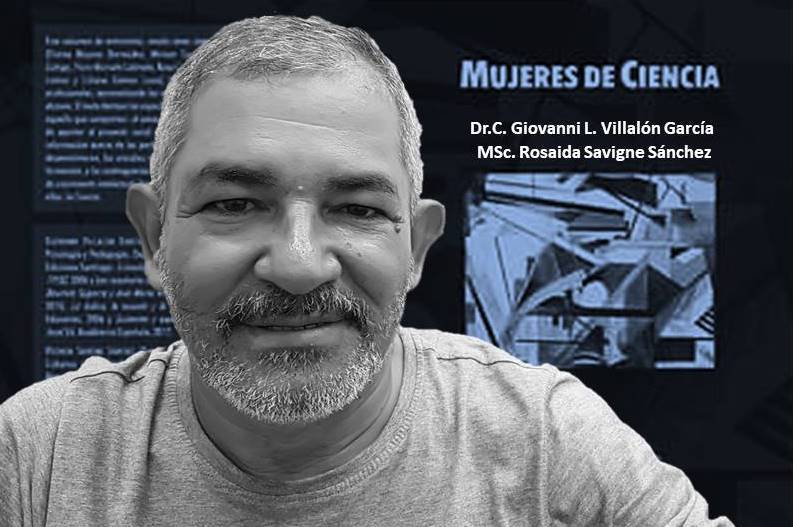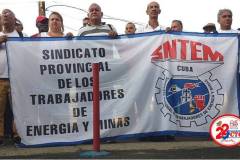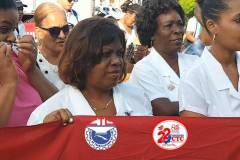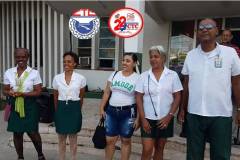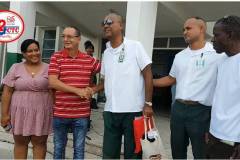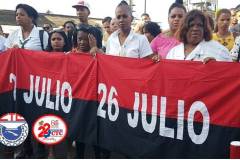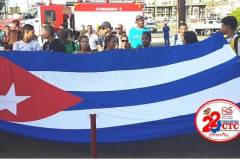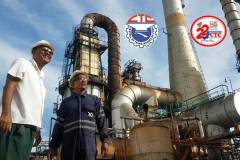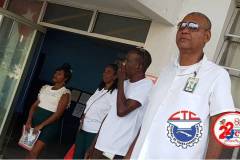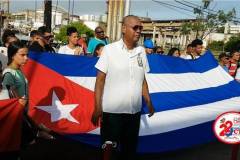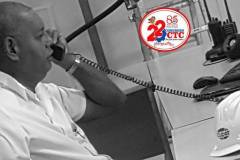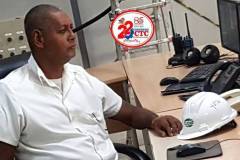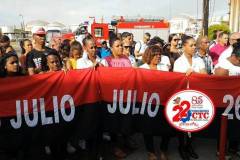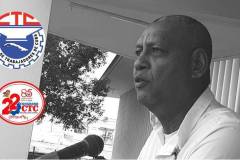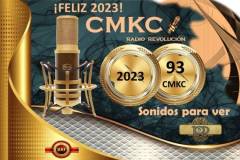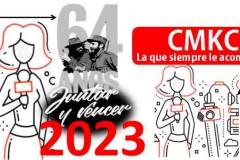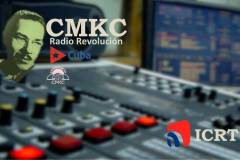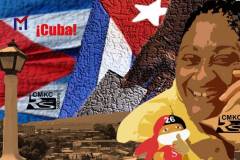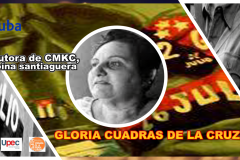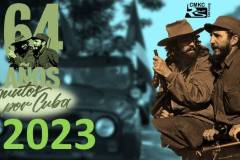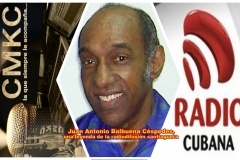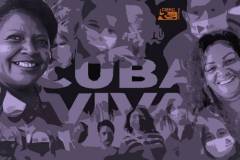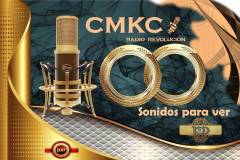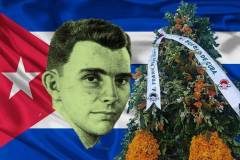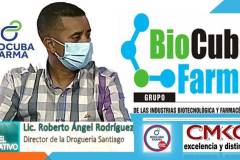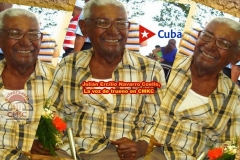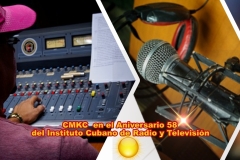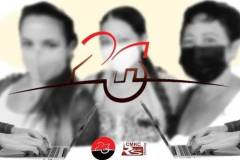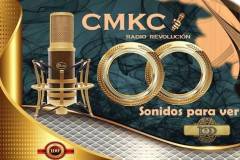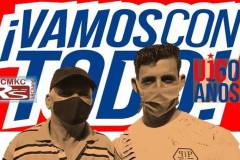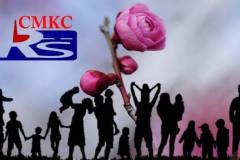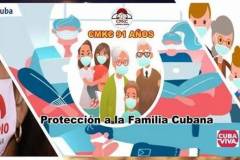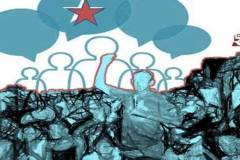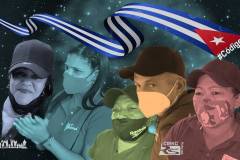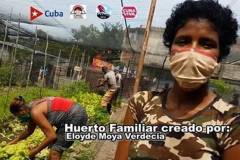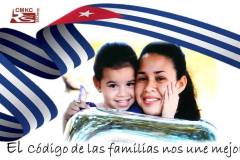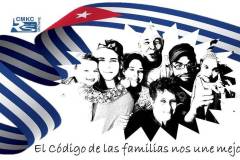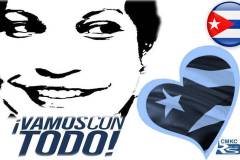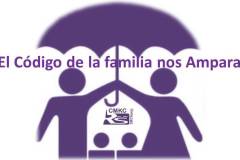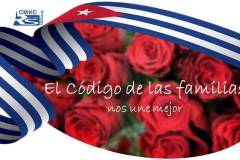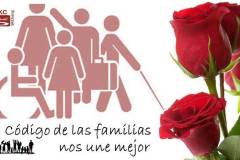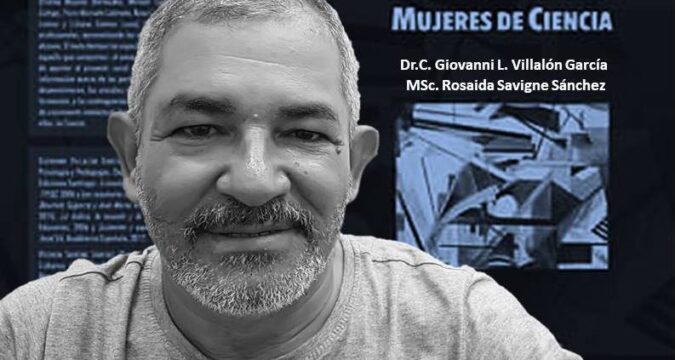

By: Santiago Romero Chang
Translated by MSc. Guillermo Rodriguez Cortes
The book “Women of Science” is a set of stories, a text that summarizes, but is not conclusive about the lives of seven women first, then five others who are also considered as examples, paradigms or references on the work of women from Santiago de Cuba in the scientific-technical field.
Not only Santiago de Cuba, but the whole country is happy to have this new book by Dr.C. Giovanni L. Villalon and MSc. Rosaida Savigne, authors of the book «Women of Science», whose text confirms the female leadership of Santiago de Cuba in several contributions with international impact.
Today, Dr. C. Giovanni L. Villalon directs the Caribbean Research Center and does not conclude this book, on the contrary, there are many expectations in the scientific guild because the new birth of “Women of Science” is about to take place with the updating and perspectives of studies.
Fidel and Women in Revolution Workshop
When reviewing once again “Women of Science”, many questions arise: What interest can the gender methodology offer us for those who are considered women of science? Why is there little talk about the example of our female researchers? Why is there not a more dynamic and multidisciplinary project that includes the rescue of these archives? Was it or not, crazy, to withdraw the approach of Santiago de Cuba as a Scientific Pole before so many human potentials, even with results that transcend today?
“Women of Science” is one of those jewels that we hope will arrive someday as a proposal to the “10 Questions TV Show”, as a text that is conspicuous by its absence in the Media, in the audiovisual production, in the bibliographical references of many Theses and Master’s Degrees.
Women- How do we know about this book in preparation in digital version about eleven women scientists from Santiago? Well, thanks to the persistence of its authors, in presentations and discussions at the International Symposium on Social Communication promoted by the Center for Applied Linguistics of the Science and Technology and Environment Delegation (CITMA) in Santiago de Cuba.
Here is the result of the collaboration of many scientific institutions and that had its recognition as the Best Book at the University of Oriente; as it recognizes our “Women of Science”, their international and local results, how they were formed, the advance in scientific categorization, their life stories, who were their teachers and professors, what are their renovating approaches to science, the need for ethical and human values and, above all, the updating.
“Women of Science”, according to its main author, Dr. C. Giovanni L. Villalon, «attempts to unveil this cultural substratum related to the world of women, certainly as a reflection of an era, but above all as part of a feminine imaginary, which conditioned their formation and intrageneric psychosocial typologies».
We would like to know and go deeper into the scientific contributions of women such as the Historian of Santiago de Cuba, Dr. Olga Portuondo from Camagüey; what Dr. Eloina Miyares did on the linguistic front; Dr. Liliana Maria Gomez in the studies on algae from applied electromagnetism; MSc. Martha Zoe Lemus renewing in natural dietary supplements; Dr. Flora de los Angeles Morcate initiator of architecture studies in the Cuban East; Dr C. Miriam Cardonne Molina pioneer of the studies of architecture in the Cuban East. Miriam Cardonne Molina, pioneer in economic studies; in medicine, Dr. Bertha Serret; psychologist pedagogue, Dr. Aleida Marquez; physiologist and neurologist Marlen Marina Gorguet and the consecrated in the informatization in science, Dolores Concepción Meléndez, from Santiago.
“Women of Science”, just an approach to the world of women scientists considered as Personalities in Santiago de Cuba, expression of the development of a society that strives for gender equality and where the field of science becomes a sign of the transformation achieved.
And this is confirmed when today, more than 50% of researchers are women, who predominate in the management of science in Santiago de Cuba, an area in which the main management positions in centers and universities are exercised in absolute majority, by Santiago de Cuba women… great joy.
Cuba celebrates 63rd anniversary of the Federation of Women in Cuba

Women-The Science I learned from Fidel
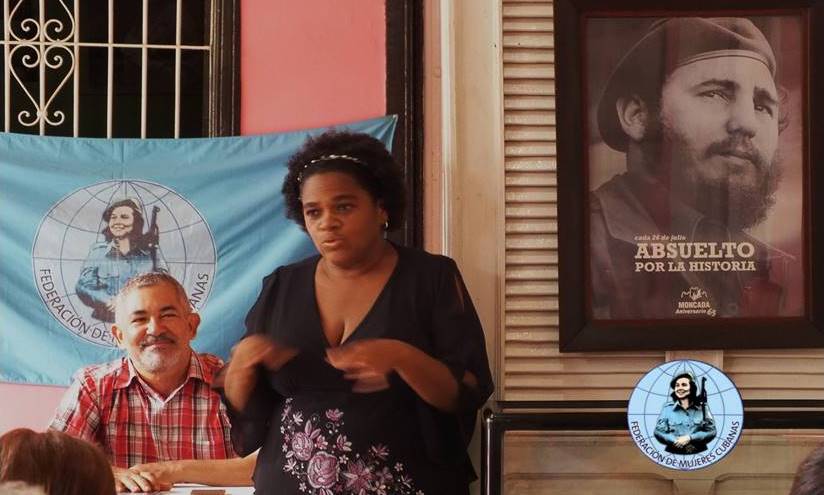
Women- North American scientists highlighted the capacity of the Cuban anti-Covid-19 model in emergencies
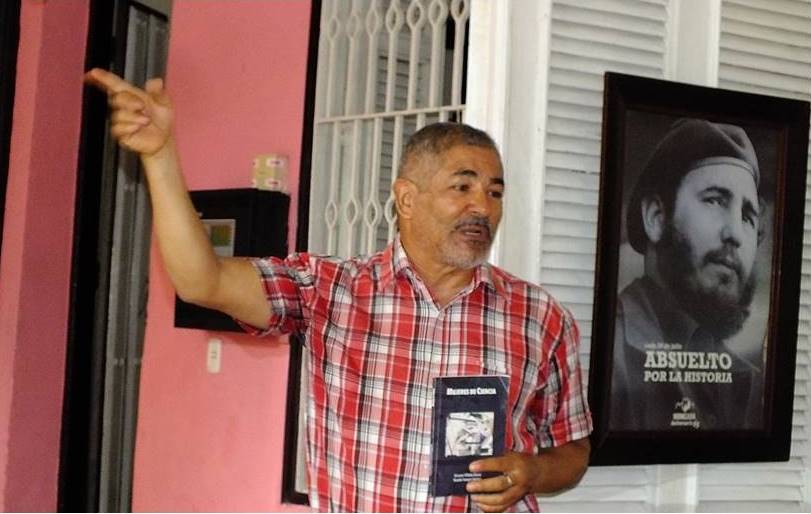
Vilma and the achievements of the Cuban women were remembering in Greece.
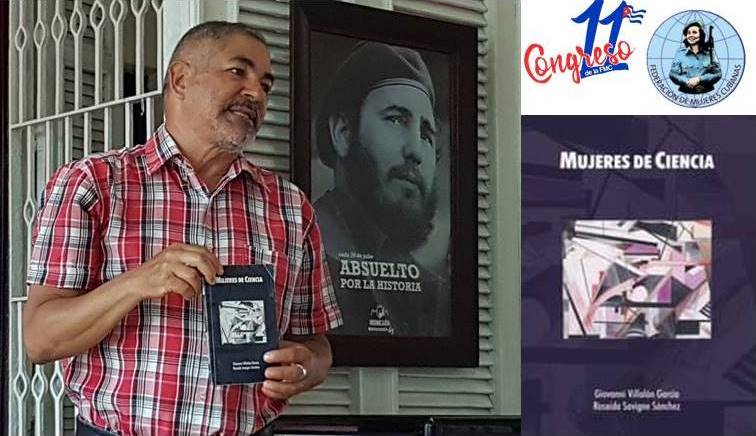
Cuba marks Women´s organization´s Day
